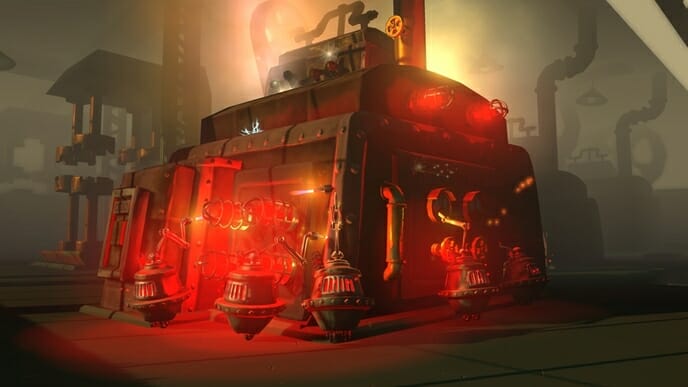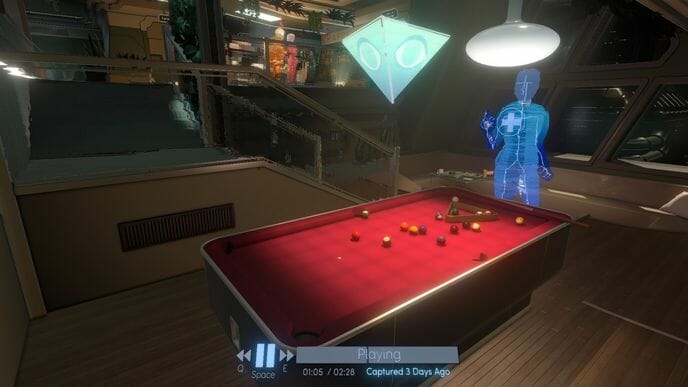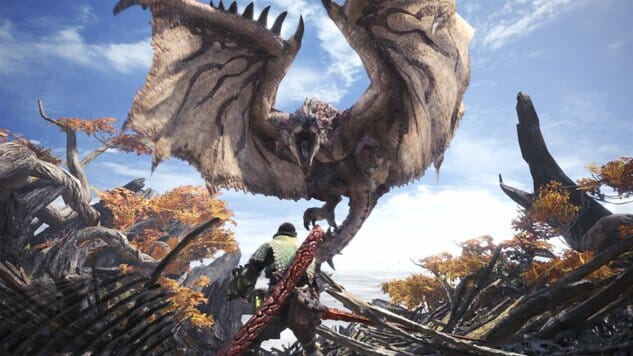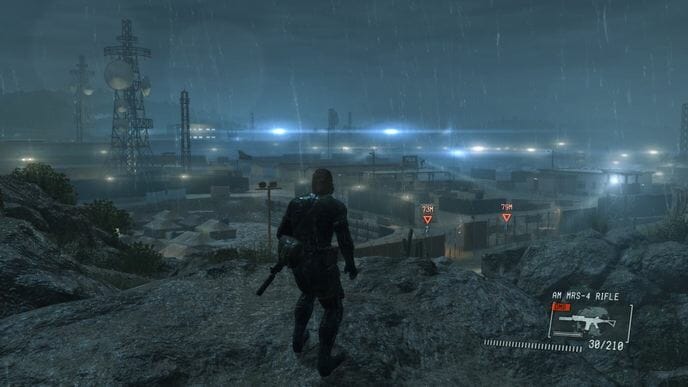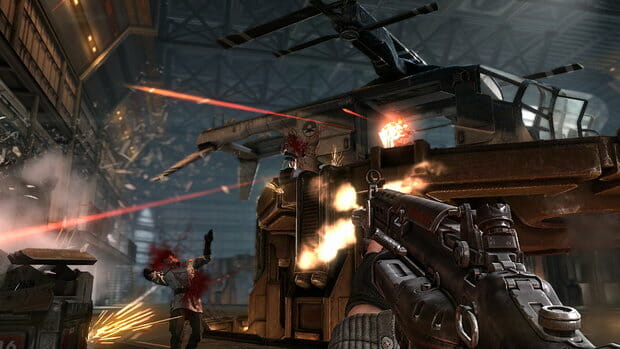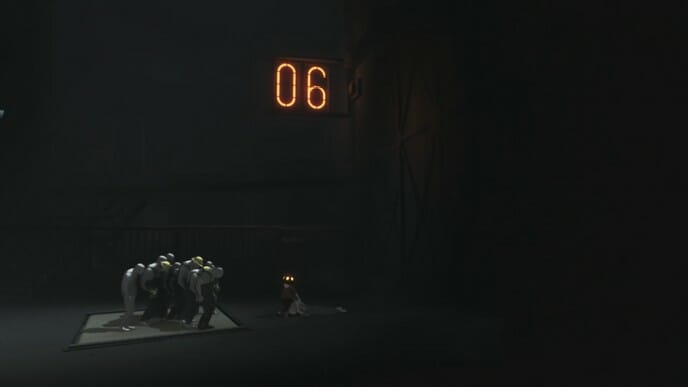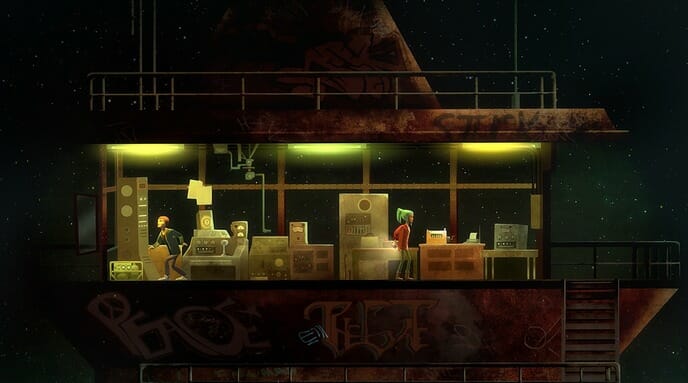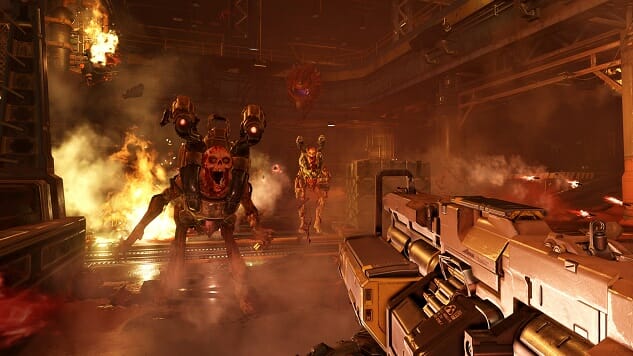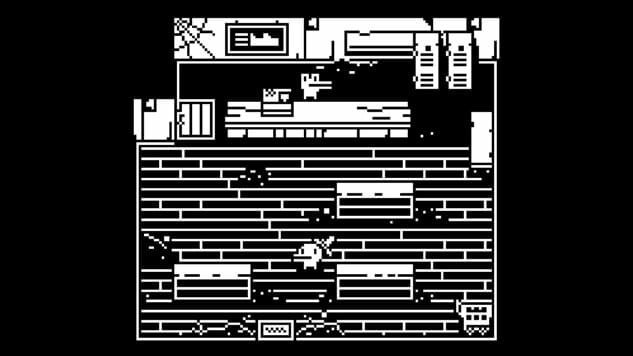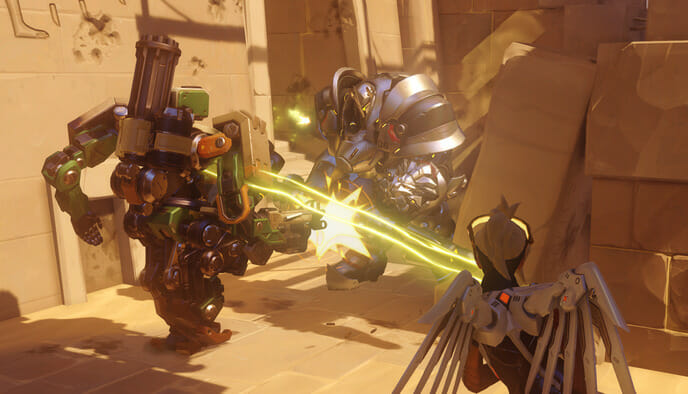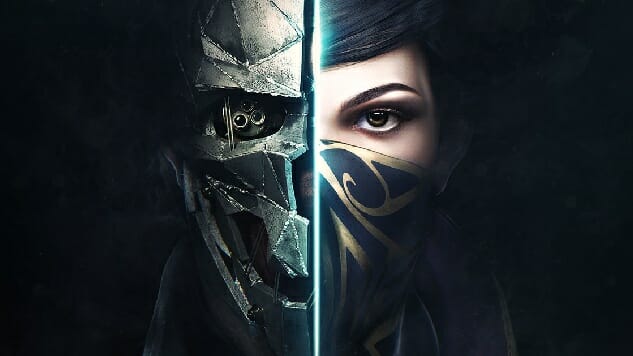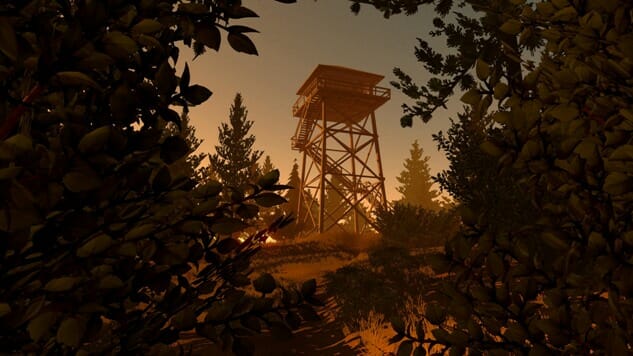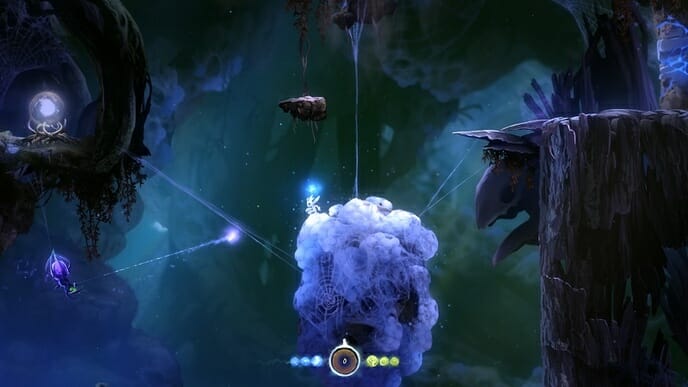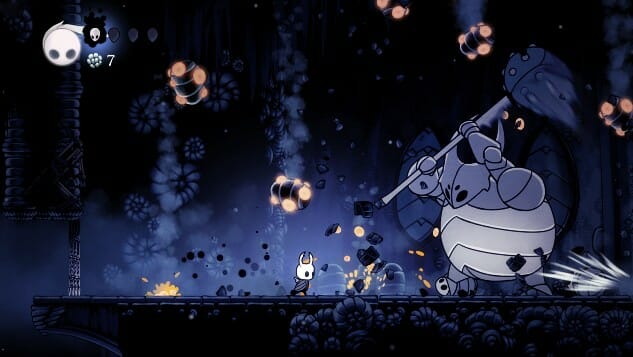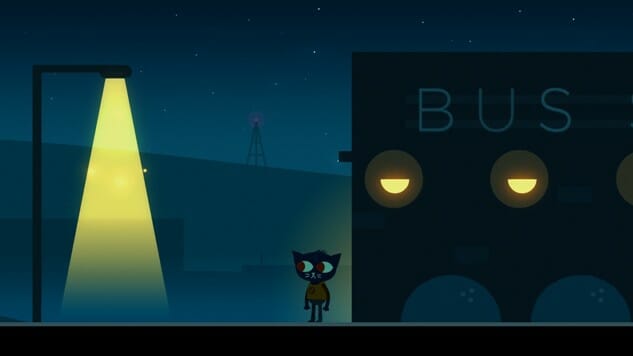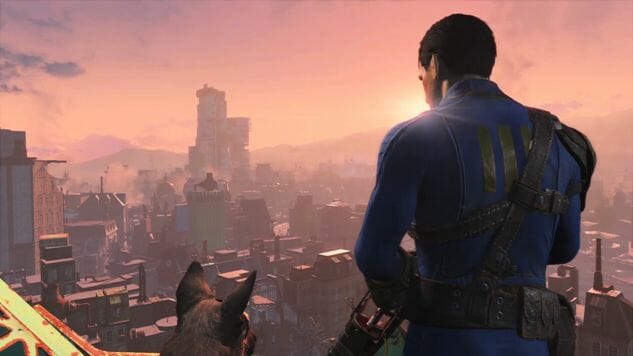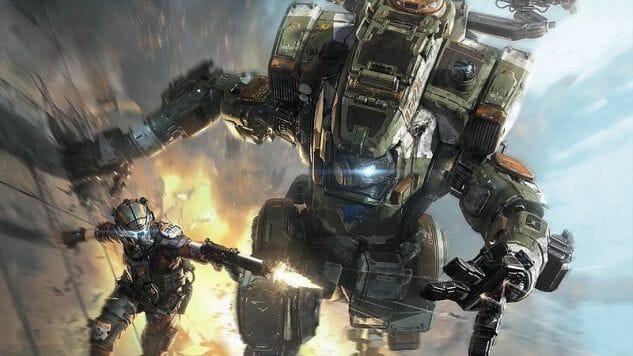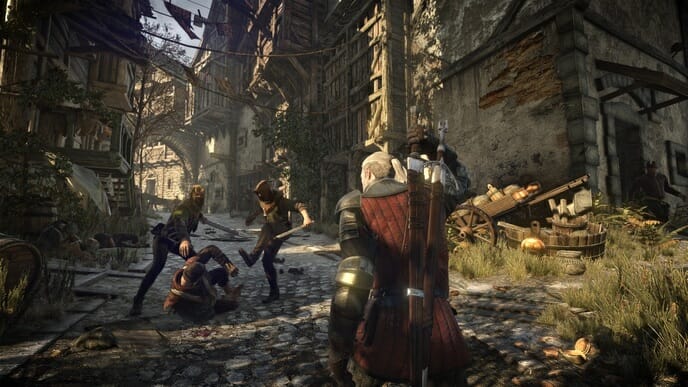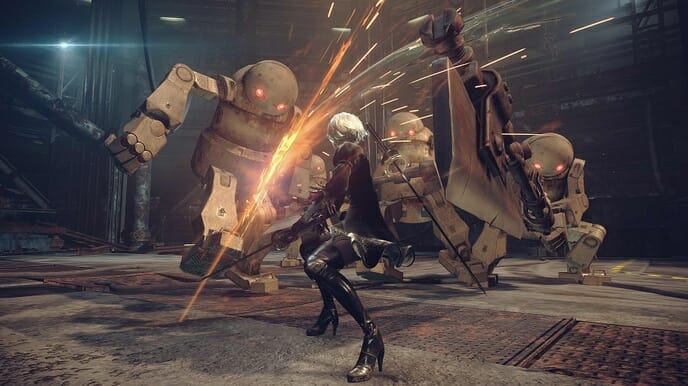The 50 Best Xbox One Games
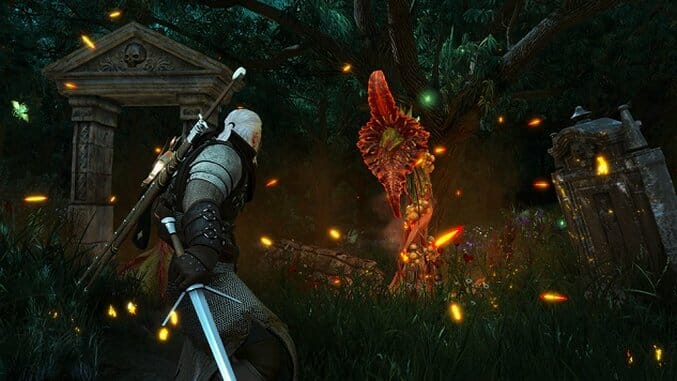
The Xbox One has had a weird history. It launched in 2013 under a cloud of bad press, due largely to its dependence on the Kinect motion sensor and a pre-release DRM plan to require every console to go online at least once a day. Even though that latter idea was squashed before launch, and the Kinect was gradually killed off starting in 2014, the damage was done: the Xbox One has sold less than half the number of units as the PlayStation 4, and has already been outsold by the Nintendo Switch, which came out over three years later. It’s kind of a shame: not only did Microsoft have some interesting ambitions with the system when it launched, but later Xbox One revisions (namely the Xbox One X, which is the most powerful console on the market today) offered a notable boost in performance. With the next version of the Xbox scheduled to come out this Fall, the Xbox One is ready to fade out from a scene it never fully arrived on.
Still, despite its issues, the Xbox One is home to some fantastic videogames. It’s a little short on great exclusives—Microsoft tried to launch new franchises with Sunset Overdrive and Ryse, but despite both having a lot to like, neither were fully successful artistically or commercially, and series like Gears of War and Halo feel depleted at this point. But Microsoft helped release some of the most interesting games of the generation, like Superhot and Cuphead, and the Xbox One can play dozens of the top third party games. And if none of these newfangled games do it for you, it can also play over 600 Xbox 360 games, so those discs don’t just have to sit on your shelf until the next time you hook your old 360 back up.
We didn’t factor in those 360 games for this list, but we also didn’t have to: there were more than enough great games made with the Xbox One in mind. Here are the 50 best of them.
50. Fantasia: Music Evolved
Fantasia: Music Evolved isn’t about turning music into a sequence of buttons to mash, or about the nostalgia of a classic movie. It’s about exploring music and the possibilities of sound, letting me literally reshape them with my hands. The end result is one of the most exhilarating games I’ve ever played. I’m bouncing around, working up my heart rate, hurling my arms in every direction, pulling in keyboards and clarinets, muting guitars and drum machines, sculpting solos with my hands, and feeling a connection to music and to a game that I’ve never felt before. It’s not like dancing, and it’s not like playing in a band or DJing at a bar. It’s something entirely different, something special and weird.—Garrett Martin
49. Graveyard Keeper
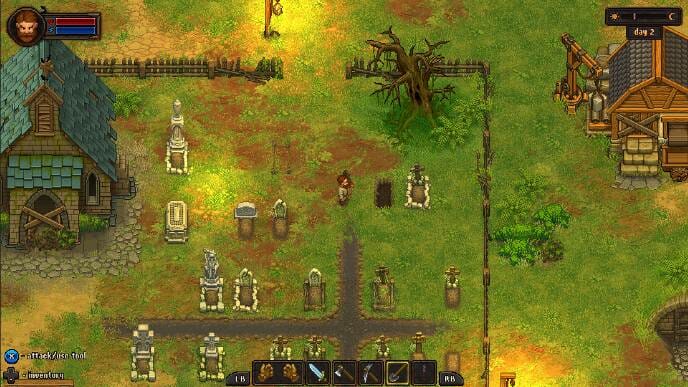
Emerging this past summer as the macabre, campy and deliciously evil counterpart to Stardew Valley, Graveyard Keeper stole our hearts by combining dungeon crawling and crafting to deliver a medieval management sim that’s as fucked up as it is fun. Whether you’re wooing a corrupt priest, making candles from human fat, or just dumping bodies in the river, the busy work in Graveyard Keeper is truly ghastly business. But there are so many games that let you harvest food, and only one that lets you harvest cadavers. For its inventive and dark spin on the genre, this game is, you could say, a keeper, and definitely one of the year’s best.—Holly Green
48. Lovers in a Dangerous Spacetime
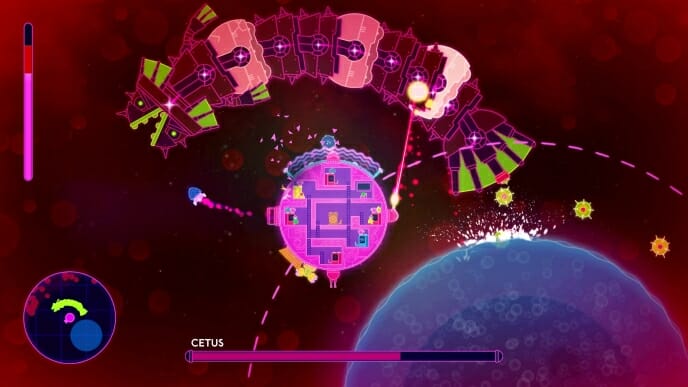
Lovers in a Dangerous Spacetime is a co-op game that forces legitimate cooperation without ever feeling overly strict or punitive. You and your partner have to work together to guide your ship through unexplored galaxies while searching for supplies and power-ups, and if you’re good you’ll quickly be able to control your ship and fight off enemies without even talking to each other. It’s an almost physical link that can verge on the telepathic. The game also looks and sounds amazing, too, with its hypercolor, cartoon rave aesthetic.—Garrett Martin
47. Forza Horizon 4
I am not a racing game aficionado, and to some degree that makes me a very honest critic when it comes to these types of games. As I said at the top, I don’t even like driving real cars. I have none of that American open road fantasy about me. So a game that can bridge all of these basic realities of my life and make me care about a car game is, in my mind, at least interesting. Forza Horizon 4 does that work. It makes me think about how following the right line and accelerating and braking at certain moments impacts the long duration of a race. It makes me care about road conditions, for God’s sake, and it does so in a way where I don’t have to be bogged down in simulation-y minutiae. To me, that’s impressive game design, and I applaud the bridge-building work that the developers of Horizon 4 have done to make someone who is a relative outsider to both this genre and enthusiasm about cars feel welcome.—Cameron Kunzelman
46. Gears 5
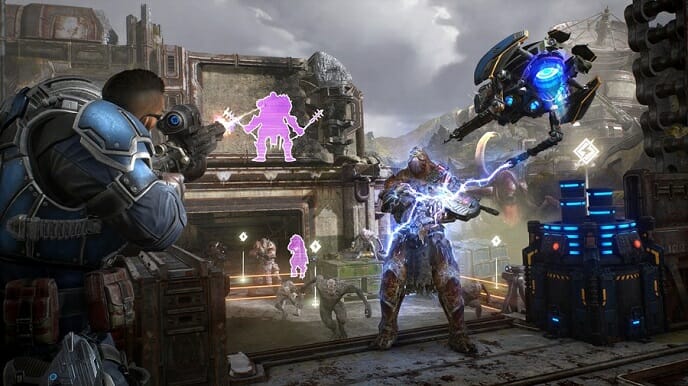
The crowning achievement of Gears of War is its over-the-top combat. Everything is so utterly ridiculous, enjoyably so. Repurposed mining tools will drop explosive drills into enemies’ bodies to make them explode in a twister of gore, and there are few things more sickly satisfying in shooters than pulling off a symphony of five splashy headshots with the hefty Boltok, Gears’ answer to Dirty Harry’s .44 Magnum. All of these things are still fun and even improved upon thanks your robotic squadmate JACK, who you can direct to lend you aid in useful ways. He can pop down barriers in front of you, blind enemies to stun them, and even freeze them so you do double damage – an essential tactic for taking down some of the bigger monsters. None of JACK’s abilities revolutionize Gears’ messy but timeless take on ducking in and out of cover and reducing foes to red goo with bullets, but it does add an extra tactical layer that makes gunfights more interesting and is a feature that isn’t mired in frustration.—Javy Gwaltney
45. Apex Legends
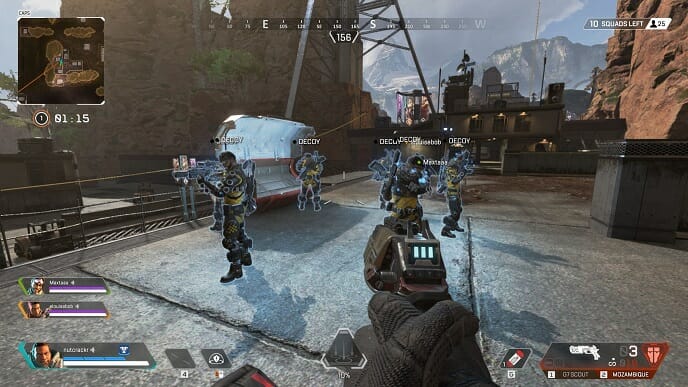
Apex Legends burst out of the gate with a ferocity that the battle royale genre hasn’t seen in a long time. This wasn’t the pioneering-but-clunky first attempts at the genre like PlayerUnknown’s Battlegrounds, nor was it the slow-but-unceasing dominance of Fortnite: Battle Royale, Apex is something different. Apex Legends feels like a game from ten years in the future, where our understandings of the battle royale genre have moved beyond the petty bugs and design foibles of today.
Instead, Apex Legends oozes polish. It’s fast, it’s relatively bug-free, it looks and sounds incredible, it has a game-changingly good contextual communication system, and perhaps most interestingly it’s managed to graft a character-focused roster onto a battle royale design more elegantly and effectively than its closest genre competitor in Call Of Duty’s Blackout mode or representation-discourse-regular Overwatch.—Dante Douglas
44. Tacoma
Tacoma might present itself as science fiction. It’s set in a shiny, futuristic space station, with each window a beautiful vista of black and pinpricks of light. But like all good sci-fi, it’s focused squarely on the present. Its depiction of exploitative labor practices and the one-sided relationship between employers and employees, of the marginalization of the worker, might be set near the end of the century, but its message is as current as videogames get.—Garrett Martin
43. Mortal Kombat 11
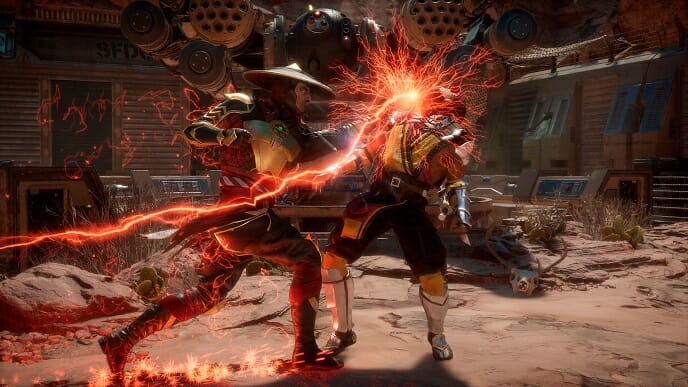
Mortal Kombat 11 goes out of its way to break down the barrier between experts and regular players. It reduces the imperceptible into easy-to-follow, step-by-step chunks that anybody can learn. Of course simply knowing how to count frame data doesn’t mean most players will be able to do it that effectively with any regularity. Also, it’s entirely possible that new meta techniques will be discovered by the fighting game community as they continue to look for advantages, once again leaving most players out of the loop. And perhaps NetherRealm intentionally baked new meta tactics into Mortal Kombat 11, knowing that the most dedicated players would quickly find them and pass them around clandestinely like they once did these other techniques.—Garrett Martin
42. Assassin’s Creed Odyssey
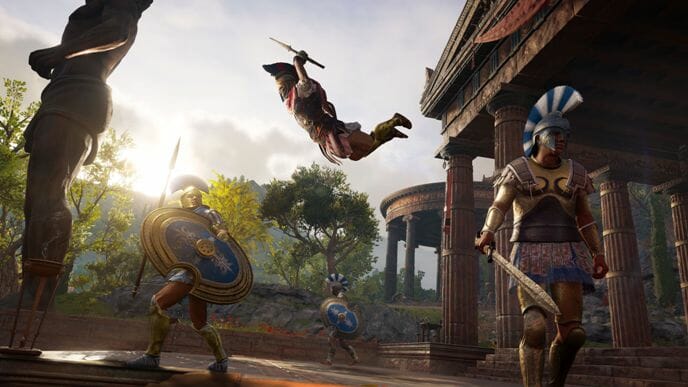
Assassin’s Creed Odyssey has a strong core of enjoyable action built upon a reliable and slightly upgraded foundation. As a story it’s an intriguing personal journey with good ideas set against the backdrop of war between Sparta and Athens, with a strong, charismatic pair of leads making up for a lot of dull dialogue and meandering conversations. As an Assassin’s Creed it turns Origins from an outlier into the start of the new status quo, sacrificing a bit of its identity in order to bring it more in line with Ubisoft’s other open world games. It still captures much of what makes these games special, though, from the historical setting, to the dynamic action, to one of the few stealth combat systems that isn’t too slow or frustrating to enjoy.—Garrett Martin
41. Monster Hunter: World
The Monster Hunter series, as the title suggests, has primarily been about striking down massive beasts and using their remains to fashion new armor, weapons and food. While Monster Hunter: World certainly maintains that emphasis on killing giant beasts, the game also asks us to care about the monsters we slaughter, and understand our own hand in maintaining and destroying the ecological system.—Shonte Daniels
40. Dandara
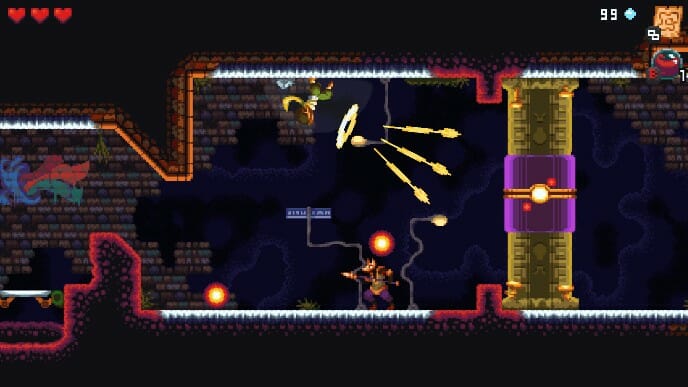
Long Hat House’s first game might play fast and loose with history—its hero, Dandara, is a real-life figure from Brazilian history—but its Metroid-style design and unique approach to motion make it compulsively playable. It’s part myth, part dream, all wrapped up in an occasionally psychedelic sci-fi action game heavily indebted to the aesthetics of the ‘80s and early ‘90s, and one of the best new games of the year.—Garrett Martin
39. Dragon Ball FighterZ
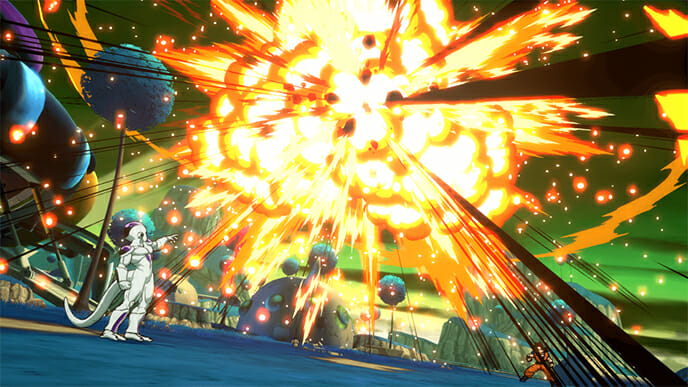
Dragon Ball FighterZ is both the fighting game and Dragon Ball spin-off I never realized I always wanted. The production values are better, and the narrative tension is vastly improved. Given how Dragon Ball FighterZ amps up the drama on existing Dragon Ball storylines, increases engagement by allowing the player to take dialogue sequences at their own pace, and puts a polished, beautiful spin on the old cartoon, this isn’t just my favorite Dragon Ball game. It’s my favorite Dragon Ball anything.—Holly Green
38. Metal Gear Solid V: The Phantom Pain
The Phantom Pain might be the only open-world game I’ve ever played where I can say I feel like I wasn’t wasting my time on some activity that was dull or poorly designed. Even my favorite games in the genre all have at least one or two clunky activities that they force you to do over and over again for the sake of progression, tainting the experience. However, nothing feels like a chore in The Phantom Pain. It’;s a game made by people who know the pieces of its construction intimately and how those pieces should connect to one another, who understand that making the small moments matter is just as important as the big picture.—Javy Gwaltney
37. Resident Evil 7
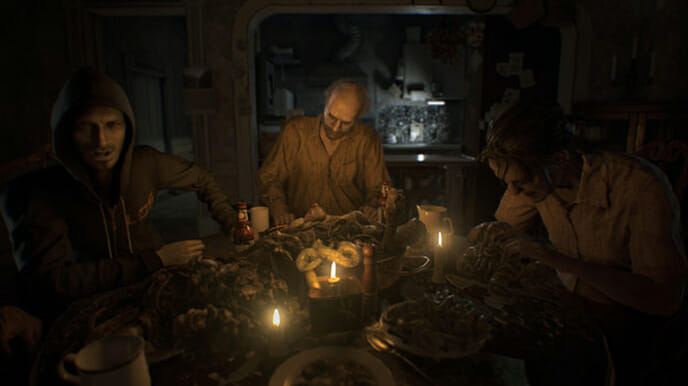
It’s almost too on the nose, really. Did Capcom know what horrors we would all face, this coming year? Because, now, more than ever, we feel the pressure to escape this horrifying house—to tear the boards from the windows and let the sunlight stream in, and to show the world the horrors hiding inside. We don’t have government-funded special forces to help us; their funding probably got cut, years ago. We’re just going to have to escape this plantation on our own … and, on our way out the door, burn it all to the ground. Salt the earth, and never look back.—Maddy Myers
36. Wolfenstein: The New Order
I don’t get into arguments often. I’m mostly content to let people shout whatever they want no matter how silly it is or how much I disagree with it. Except when it comes to Wolfenstein: The New Order, a game I’m downright belligerent and obnoxious about. I will yell at you if you don’t like it. I will drown you in a hundred copies of the game until you swear your allegiance to it. It’s the best shooter since Half-Life 2 and I’ll take on anyone who says differently. The game’s combination of powerful gunplay and a thematically rich narrative about a man dragging himself into the arena for one last fight against fate is equal parts exhilaration and tragedy. An absolute must-play for anyone who likes games that involve shootin’ dudes.—Javy Gwaltney
35. Dead Cells
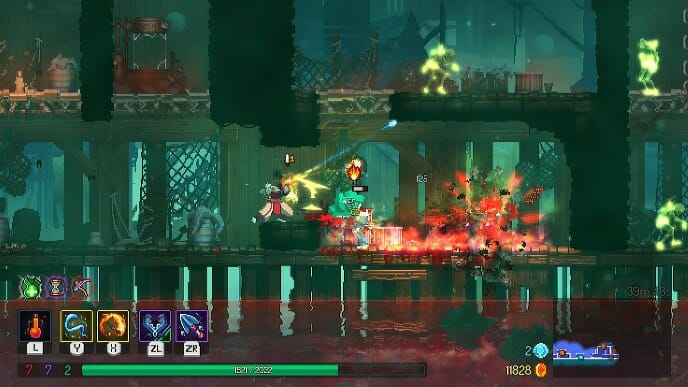
Not content with sheer novelty, Dead Cells importantly taps into the most significant aspect of both of the genres it fuses together. Few games are as addictive as those Metroid-style backtrackers, and perhaps the only thing that has come close this decade is the spate of roguelike platformers that flourished in Spelunky’s wake. Dead Cells beautifully captures what makes both of those genres impossible to put down, uniting the “just one more” drive of a roguelike with the “must keep going” compulsion of a Metroid. It’s a smart, confident piece of work, and anybody interested in either of the genres it builds on should consider checking it out.—Garrett Martin
34. Inside
Like Limbo before it, Inside is a dark puzzle game set in a deadly and oppressive world. The boy you control will die suddenly and frequently in violently graphic ways, and the world he explores is almost entirely cast in shadow. Inside is a bit more defined than Limbo, though, replacing that game’s more nature-based fears with Orwellian overtones and a dystopia run by man, and then making your own character complicit in the same kind of mind control that’s ruined his town.—Garrett Martin
33. Oxenfree
Oxenfree captures the vicissitudes of friendship, especially the heightened passions of teenage friendship. No matter how believable these characters and their relationships can be, though, you might find yourself wanting to get away from them altogether, especially early in the game. Even Alex, the character you control, can occasionally rankle with her petty reactions and annoying humor. In that way, Oxenfree recreates that sense of self-mortification that should be most acute during your teenaged years, and how we’re not always capable of saying what we want to say.—Garrett Martin
32. Sekiro: Shadows Die Twice
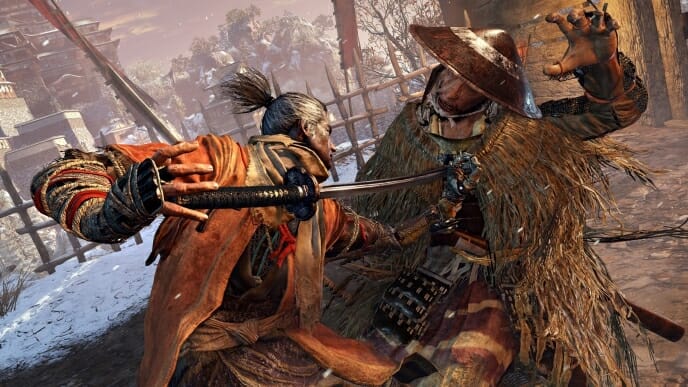
“Fun” is a nebulous, subjective concept that many critics try to avoid, but there’s not a better word that sums up why Sekiro’s repetition never becomes a problem. Sekiro’s tightrope combat—a delicate balance of patience, timing and precision that can swing from stately to furious in an instant—is so physically and intellectually satisfying, and such a consistently evolving challenge, that it never grows old. It retains the same kernel of sheer, unabashed fun that you feel from the first time you get a handle of its defense-oriented, posture-disrupting action, but slowly tweaks it through the steady introduction of new skills and techniques.—Garrett Martin
31. Superhot
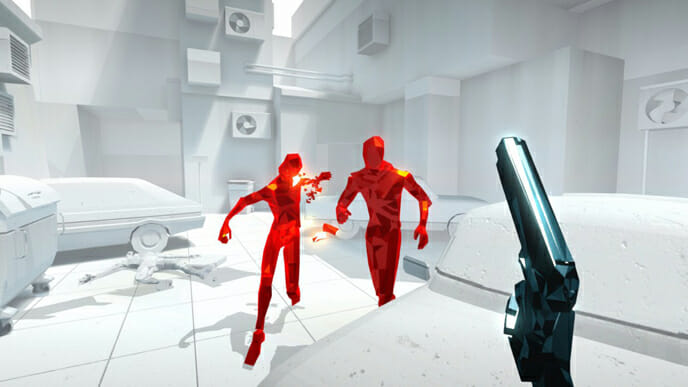
Superhot’s shootouts make its case better than its narrative layers ever could. Its methodical take on shooter combat forces you to linger on the consequences of your actions without saying a word. And that’s all it needed to be.—Suriel Vazquez
30. What Remains of Edith Finch
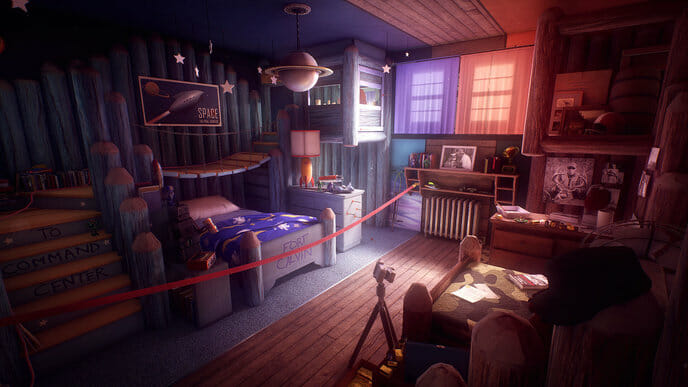
Despite its sometimes too-broad character development and stylistic stumbles, Edith Finch is still a fascinating game—one that has admirably tailor-built its player interactions to fit the varied stories it tells. This is welcome, especially when the inverse approach is so often taken. It’s a game made with real imagination and an honest attempt to capture the unique perspective of its wide range of characters. Given its wide scope, it’s understandable that it’s also a game that succeeds more in concept than execution. Like the subjects of the multi-generational novels whose tradition it embraces, Edith Finch’s individual successes and failures are less important than its overall effect. It’s a story made of stories, and the results of its breadth seem more important than the fine details.—Reid McCarter
29. Hyper Light Drifter
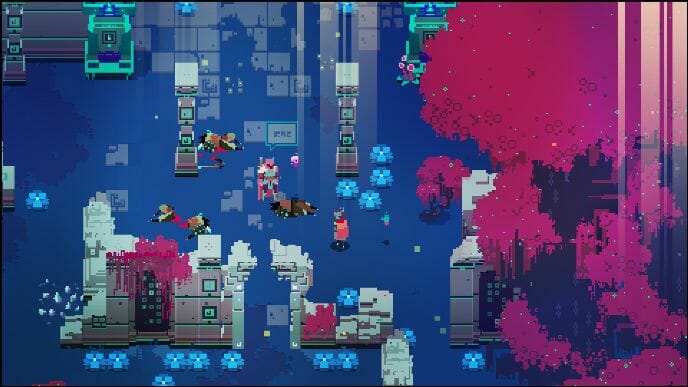
The world of Hyper Light Drifter is a rotting corpse, and the lizard people or bear people or bird people of that world continue to dwell in the ruins of some kind of technologically advanced civilization. You, embodying the player character, are haunted by your own death, and you’re haunted by some kind of force that keeps this world in its state of decay. It is unclear whether progress in the game means finally killing the world or setting it free, and that ambivalence sticks with me even now.—Cameron Kunzelman
28. Playerunknown’s Battlegrounds
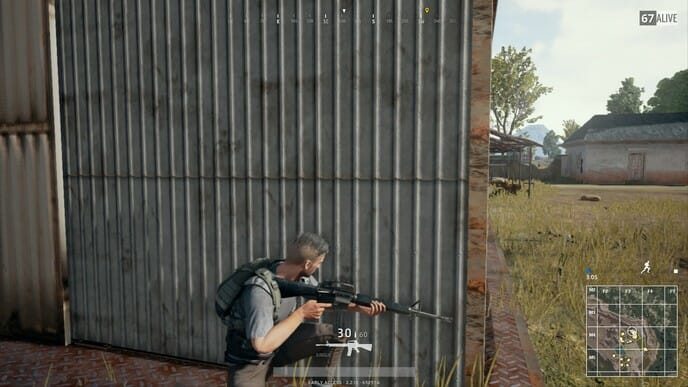
One of the decade’s biggest surprise hits has an unwieldy name, but there’s a reason for that: “PlayerUnknown” is actually a person, real name Brendan Greene, a well-known modder who created a Day Z mod based on the Japanese novel and movie Battle Royale. Battlegrounds takes that concept of a shooter where the goal is to eliminate every other player on an increasingly dangerous island and turns it into a far more accessible game. The extreme pressure of Battlegrounds elevates the multiplayer shooter to a previously unknown level of tension and catharsis, and spawned the entire battle royale genre that quickly took over all of gaming.—Garrett Martin
27. Rocket League
Rocket League is the only game I’ve played that’s captured the truly exciting bits of soccer for me. The vast majority of (the admittedly few) sports games I’ve played are so beholden to seasonal statics that I’m just always so bored because I can’t be bothered to keep up with the annual Who’s Who of professional leagues. Rocket League’s touch of zaniness allows it to focus on the bare essentials of the game: there are the players, a ball, and two goals. There are no stat games here. No managing players. No fluff. Just soccer; with turbo-powered RC cars, and it’s all the better and more accessible for that.—Javy Gwaltney
26. Hitman 2
Agent 47 returns with another round of multilayered and minutely detailed puzzle boxes for us to sneak and murder our way through, and as revelatory as 2016’s first go round for this reboot was, the sequel still comes out on top. Hitman 2 eschews the episodic nature of the first season, while still exploiting open world game concepts in a way that’s sprawling but still tightly compact and manageable. Solving its open-ended missions and variety of challenges can be a true test of your ingenuity, and one of the more satisfying times you’ll have with a game this year.—Garrett Martin
25. DOOM
The player, a gun, and things to kill. That has always has been DOOM, and id’s legacy has been rekindled with DOOM (2016). You may argue that a good sequel’s job is to iterate on past successes, to further develop mechanics, or to evolve a title to the next step in its life cycle. But DOOM (2016) isn’t a departure or a reimagining. It’s something much better, much more pure. DOOM (2016) is a homecoming. And boy, does it feel good to be home.—Patrick Lindsey
24. Minit
Minit is an adventure with a twist and also a critique of capital split up into tiny bite-sized chunks and told through adorable animals in a sparsely drawn fantasy land. After enough stop and start minutes you’ll realize a factory is running roughshod over this place, polluting the land and working some of its employees to the bone while firing others whose jobs can now be done by machines. Behind it all is a maniacal manager prioritizing productivity over all else. After all these minutes and all these lives the true story reveals itself, and to reach the end you have to collect item after item, life after life, to eventually have the skills necessary to grind the factory to a halt. Even after realizing this it’ll take many minutes and many lives to finish everything you know you need to do, tiny bits of incremental progress in-between passages of rote, mundane, repetitive busy work. If it starts to feel like a job, well, maybe that’s the game’s point. The factory is Minit itself, its employees all of us who play the game, and its dictatorial boss the developers who put us through these paces again and again and again in hopes of the smallest iota of progress. Like the unending and uncaring work shifts that eat up our days until we die, we expend most of our vital energy redoing the same soul-killing nonsense over and over. It is one of the most effective metaphors for the exploitation of the working class seen in videogames. The minutes pass, we experience multiple tiny deaths every day doing the job we’re expected to do. And we press a button, and we do it again.—Garrett Martin
23. Star Wars Jedi: Fallen Order
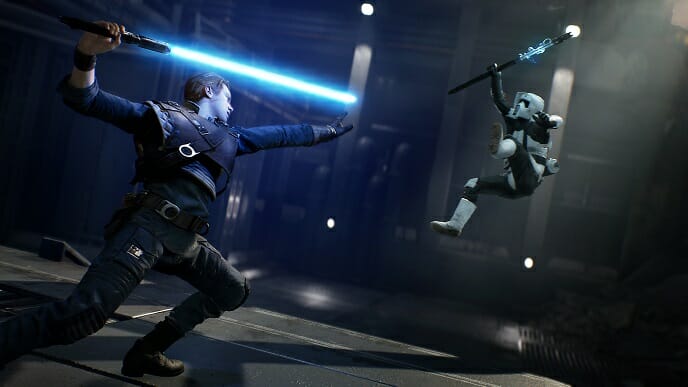
Fallen Order stacks some of the best parts of Metroid, Dark Souls and Uncharted inside a Star Wars trenchcoat, but that isn’t the smartest thing it does. That would be how it squarely centers on the stress and trauma of its characters. PTSD should be rampant in this universe, considering war is all anybody seems to know, and yet within the Star Wars canon it’s rarely been focused on as keenly or depicted as clearly as it is here. Its lead characters aren’t all that likable, for reasons that are both intentional and unintentional, and that is a flaw; still, they feel a bit more human than what you normally see in games and Star Wars stories, and that, combined with the guaranteed to please gameplay formula, makes Fallen Order a Star Wars highlight.—Garrett Martin
22. Overwatch
I feel like a hero when I play my favorite characters and I get choked up at the idea of helping my team. Inclusivity and positivity hide behind some intelligent, pared-down game choices and in doing so, Blizzard has spun an engaging fantasy around this idea that if we all just try, then that’s good enough. Maybe it doesn’t matter if I’m the best player, as long as I try to be better. In a world full of games where being the best is the only space to occupy, Overwatch at least tries to create a new and better future for the rest of us.—Nico Deyo
21. Celeste
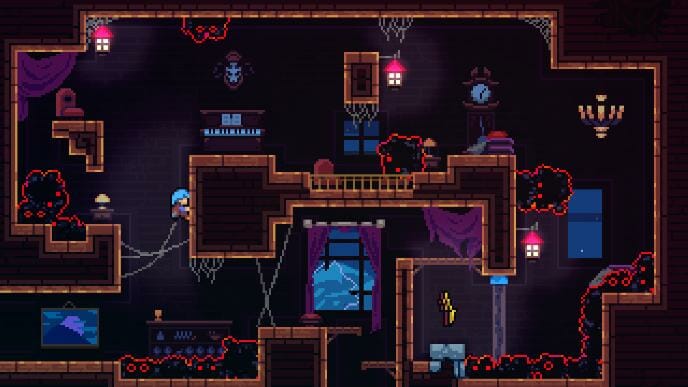
Maddy Thorson’s follow-up to Towerfall employs a familiar aesthetic and language from videogames past to tell a story about mental health and self-actualization, using the mountain the game is named after as a representation of a young woman’s struggles with depression and self-doubt. Celeste is an inspired triumph, with art that recalls the early ‘90s, and requiring a precision to navigate its levels that comes straight out of the heyday of platforming. The vibrant use of color and warm, stylistically varied score elevate the retro aesthetic beyond mere homage. It’s a touching and occasionally insightful depiction of what it’s like to live with anxiety and depression.—Garrett Martin
20. Minecraft
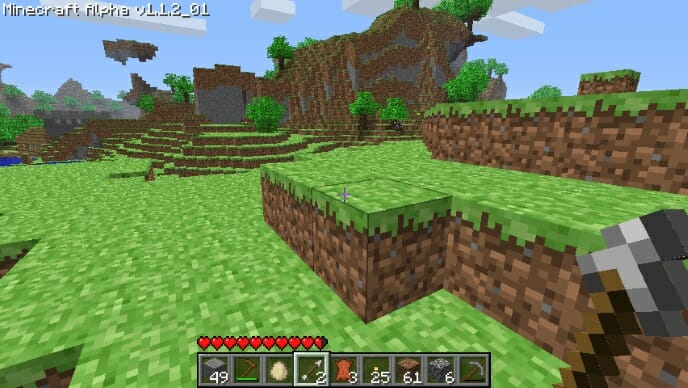
Progression in Minecraft takes investment, patience, research and a reliance on the knowledge and efforts of others. These are values that modern convenience and modern media have encouraged us to abandon, videogames included. With every quest-line, every arrow pointing the way and every pre-established reward, we grow just a little bit farther outside of ourselves and buy in just a little bit more to the cultural zeitgeist. We’re content with this because we’ve lost the ability to create structure and meaning for ourselves outside of a pre-established system. In Minecraft, we’re finally left alone—a shockingly simple and subversive approach that makes the game both unapproachable and essential.—Richard Clark
19. Hellblade: Senua’s Sacrifice
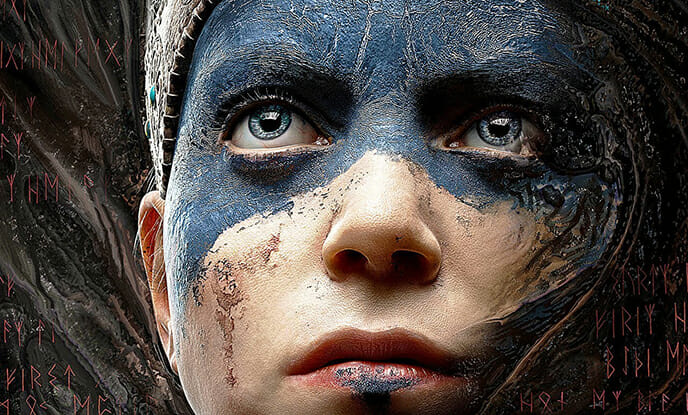
When I think about the gameplay of Hellblade: Senua’s Sacrifice, how Senua comes to work with, and not against, her intrusive thoughts and distorted perceptions, the word “self-acceptance” comes to mind. While some may see it as a horror game, I like to think of it as a love story, one that explores the power of finding someone who does not have to fully understand you in order to know who you are. Notable for its sharply intimate knowledge of Celtic and Norse traditions, its simple but satisfying combat and its innovative depiction of psychosis, it is impressive how the game manages to marry these three aspects and still deliver a well-scripted action game that achieves a balance between its puzzle elements, cut scenes and action sequences. Despite the despair in Senua’s story, her father’s abuse, the alienation of her village and her doomed fight to bring her lover back from the dead, Hellblade: Senua’s Sacrifice is hopeful. It suggests there is still a meaningful life to be lived even if your perception of the world is so dramatically different from other people. And I find that encouraging and beautiful.—Holly Green
18. Dishonored 2
The most striking thing about Dishonored 2 is its confidence. It creates massive, sprawling levels, with lots of details to discern and small-scale stories to discover, and hardly ever forces you to explore even half of them. You can spend dozens of hours uncovering every secret and trying hard not to kill anybody, or just blitz through, crossbows a-blazin’, in a sprint to the finish line. New scenarios regularly introduce new twists on core mechanics or standard game geometry, and they always feel of a piece with the game’s world and characters. Even when you take the longest path and embrace everything the game has to offer, it never feels repetitive or self-indulgent, and that extra attention to detail fills out what is already one of the more fully realized worlds in games. Add in a strong focus on characters, both new and old, and a multitude of play styles, and you have one of the best action games of the year.—Garrett Martin
17. Firewatch
Firewatch is a game, but it’s not useful to write about it as a game. Who cares what your fingers do while you’re playing this? Yes: it has graphics. The stuff that matters is what Henry and Delilah talk about on their radios. It’s what Henry reads throughout the few campsites and outposts he comes across. It’s what you feel as the story unfolds like a short story on your television screen, visiting the private grief of others who can struggle to communicate just as torturously as all of us in the real world can. And although this dual character study can feel a little slight, and has a few improbable notes that are struck seemingly just to enhance a sense of mystery, that central friendship between Henry and Delilah is powerful. It feels real, and important for both of them.—Garrett Martin
16. Gone Home: Console Edition
Will Wright once said, “games are not the right medium to tell stories; videogames are more about story possibilities.” Gone Home challenges such notions, not only by telling a wonderful story but by setting players free in the game world and trusting them to uncover it. By refusing to tell us what to do in the game, it communicates a self-confidence that most games lack. The result is an unforgettable story that’s intensely personal but universally powerful. To play Gone Home is to grow deeply invested in the lives of a family we’ll never know but in which we can all see different aspects of our own families and our own selves.—Drew Dixon
15. Ori and the Blind Forest
Ori and the Blind Forest is a gorgeous adventure with an aesthetic that seems vaguely indebted to a variety of world cultures and mythologies. With its focus on forest spirits and a sylvan setting it resembles a Miyazaki film, but there’s no explicit connection to Japanese mythology. It borrows the fundamental feeling of mythic storytelling to depict a basic hero’s journey, with all the loss and personal growth that entails.—Garrett Martin
14. Hollow Knight
Any game can be hard. That’s not what makes Hollow Knight so great, at least not alone. Team Cherry’s first game is a charming Metroid-style game full of warmth, humor, precise platforming, and, yes, brutal, forbidding difficulty that’ll make you think of a Souls game. (Look, I know that’s a cliche, but writers wouldn’t make that reference so often if it wasn’t so often true.) Hollow Knight is a great example of how to reference the past without dwelling on it—of how to churn ideas and mechanics and aesthetics from previous generations of videogames into something new and original.—Garrett Martin
13. Night in the Woods
The genius of Night in the Woods is that it grounds its heavy themes not in the worn down characters of Raymond Carver, but in the queer anarchist punks of its lead character’s generation. The game is a rare look at characters who balance all of the burdens above with a love for retro videogames and band practice and drinking in the woods while some blowhard from high school plays acoustic guitar. The game borrows tonally from a variety of sources—everything from the hyperkinetic Scott Pilgrim to the peculiar horror of Haruki Murakami or Blue Velvet back to the blue collar sob stories of Breece D’J Pancake. Plus, did I mention all the characters are animals? Like BoJack Horseman, this aesthetic allows the game to fluctuate rapidly between over-the-top absurdity and soul crushing sadness.—Salvatore Pane
12. Fallout 4
It’s amazing that something with Fallout 4’s scope and magnitude remains as bewitching as this game does. Bethesda’s formula is overly familiar by this point, but from a story perspective these games exploit the freedom afforded by the medium more than almost any other notable examples. Fallout 4 is built on mystery and discovery. We can charge through the main storyline as quickly as we’d like, but the true power of this game comes from exploring at our own pace, uncovering its secrets in no certain order and at no set time.—Garrett Martin
11. Cuphead
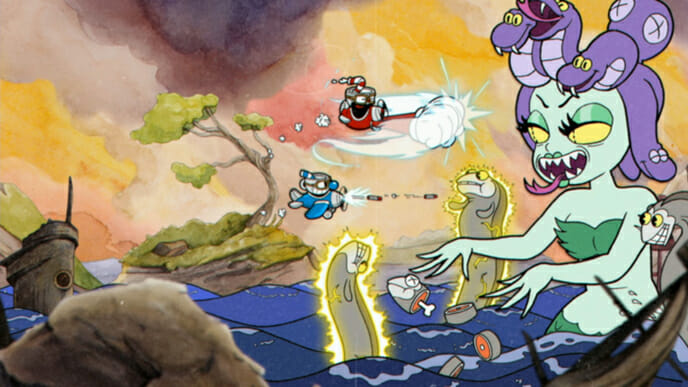
Can you call something “frustrating” if you’re actively enjoying it all the way through? You will repeat yourself a lot in Cuphead, a brutally hard game built around old-school arcade-style boss fights and platforming. A major reason the constant restarting doesn’t grow old is the beautiful presentation, with an art style patterned after early 1930s hand-drawn animation and an original score of big band and ragtime music. As difficult as it is, though, the game rarely feels capricious. You’ll usually understand what you have to do, and the struggle is just being able to pull it off. As frustrating as it can be to fight the same enemy two dozen times before finally winning, it only makes the satisfaction of pulling it off that much more powerful.—Garrett Martin
10. Titanfall 2
I have a healthy respect for aimless, open-ended games that let us play and explore at our own pace. They often don’t feel wasteful, no matter how many hours one can pour into them. What does feel wasteful are tightly scripted and guided games that drag on for hours and hours, pumping out new battlefields and bad guys to plow through between cutscenes well past the ten hour mark. Titanfall 2 cuts out all the extraneous business that can plague modern day action games, resulting in one of the tightest, tautest, tensest first-person shooters in recent memory, with a solid helping of mind-bending mechanical tomfoolery on the side. Like The Last Guardian, a game that otherwise could not be any more different than this one, at the core is a touching, heartfelt relationship between man and (techno)beast that trounces most of the human relationships found in games. Titanfall 2 is a laser beam with a heart.—Garrett Martin
9. The Witcher 3: Wild Hunt
When I think of my time in Witcher 3, I think mainly of the quest for Ciri, your adoptive daughter. I think of mages with freckles and villagers working fields after you drive away their tormenters. I think of it as a game which says that all we have is each other, as family and friends. As people, whose lives are short but brilliant. As a game that says that what makes life worth living and struggling for isn’t trying for perfection but our common imperfections. It’s aspiration by way of mundanity and I don’t know that I’ve played anything quite like it.—Ian Williams
8. A Plague Tale: Innocence
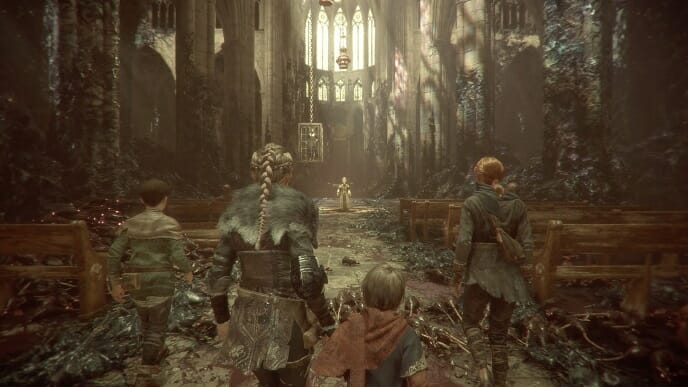
This subtle, believable approach to characterization reinforces that A Plague Tale is an unusually patient and confident game. It lets its story unfold slowly, avoiding the urge to dole out increasingly elaborate set pieces with a predictable regularity. It never lets its pacing or sure-handed command of character become subservient to plot or the need for action or difficulty that’s assumed of videogames. Sometimes the notes a publisher sends game developers can be felt while playing a game—there’ll be too many action sequences, or ones that drag on for too long, or stories will feel truncated, as if a crucial plot point or bit of character development was cut out to make things move faster. That never happens with A Plague Tale, which maintains a consistent vision and pursues it at its own pace.—Garrett Martin
7. Stardew Valley

For all the nostalgia-driven indie gaming experiences we’ve had over the past decade, the long-running and much-loved world of Harvest Moon had gone curiously neglected until more recently. Stardew Valley is easily the best of these virtual farming love-letters, making vast improvements on core mechanics while adding its own unique flavor. It’s faithful enough that devoted Harvest Moon/Story of Seasons fans fell in love with it, but approachable enough that it introduced an entirely new group of gamers to the joys of a pixellated country life.—Janine Hawkins
6. No Man’s Sky

Has there ever been a better game to get lost in? No Man’s Sky is aesthetically impeccable, from its psychedelic landscapes pulled straight from Yes album covers, to its krautrock-by-way-of-Friday Night Lights score. It’s easily the best screenshot machine in recent memory. It doesn’t reward the player’s patience and diligence as much as depend on them, which makes it as brave as it is respectful. A game that’s fundamentally hopeless, that’s fixated on the vast emptiness of the universe around us, somehow instills hope in us solely through its undeniable beauty. And 2018’s Next update gave us even more to do in this massive universe, and people to do it with.—Garrett Martin
5. Outer Wilds
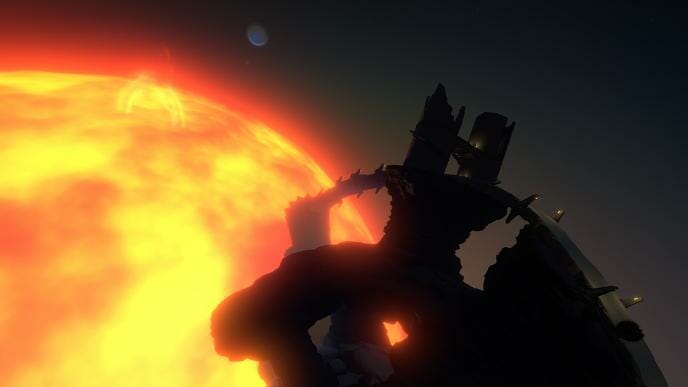
It’d be easy to make Outer Wilds sound like a mash-up of familiar influences. It’s built around a recurring time loop like Majora’s Mask; you’ll fly from planet to planet in real time in search of ancient secrets, as in No Man’s Sky; you’ll explore a variety of eldritch mysteries baked into this solar system, not unlike a new-fangled Myst. Those ideas are implemented in such a unique and seamless way, though, that the total package feels unlike anything I’ve ever played before. It focuses on a race of gentle spacefarers who build rockets out of wood in order to map the other planets that circle their sun and dig up answers on ancient settlers who left wisdom spread throughout the galaxy. The developers have clearly thought long and hard about the alien universe they’ve created, from the specific nature of its physical laws, to the culture of the creatures who populate it. The result is a game that feels appropriately alien, strengthening our desire to unlock its mysteries and explore its culture.—Garrett Martin
4. Nier: Automata
Nier: Automata is a mature, sophisticated game that avoids the JRPG trap of the narrative, the themes and the play being separate entities. Platinum and Yoko Taro are an expert pair here, harmoniously bringing together dozens of eclectic sources from philosophy to anime to history to real-life war to silly, over-the-top fight sequences into one cohesive whole where not a single part feels unnecessary, and all contribute to the larger message. It is a timely story about our priorities as a society and our continued relevance in an increasingly automated world, told in a clever way that makes meaning out of about four different genres worth of mechanics and yet could still be called elegant. It’s a sharp commentary that could only be done through games, and for now, it is easily the magnum opus of either of its authors.—Michelle Ehrhardt
3. Control
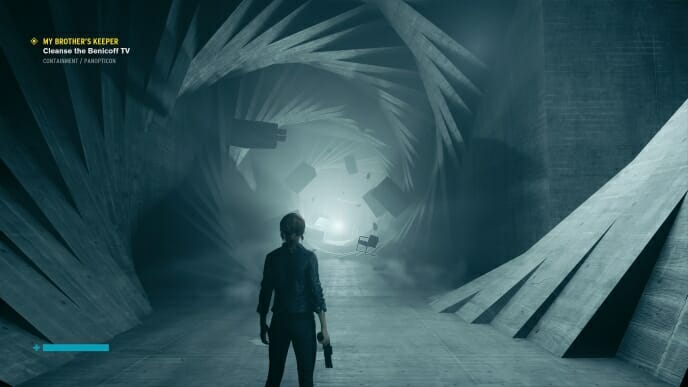
Remedy has worked hard to unite the mysterious and the mundane since at least Alan Wake, and Control is an almost ideal distillation of that theme. At its heart is the bureaucratic exploration of the unknown and unknowable, with the player stepping into the role of the new director of a government organization devoted to classifying and controlling unexplained phenomena. It’s an enigmatic and unpredictable quest not just into a nondescript office building that grows increasingly contorted and abstract, but into the heart of a conspiracy that spans the paranormal and the prosaic, and one that ultimately seems to have little use or concern for either the player or their character. In its depiction of humanity grasping for relevance and understanding in an indifferent and impossible to understand universe we see a clear reflection of our own existence. It’s a game of uncommon wisdom and depth, and one that needs to be played.—Garrett Martin
2. Kentucky Route Zero: TV Edition
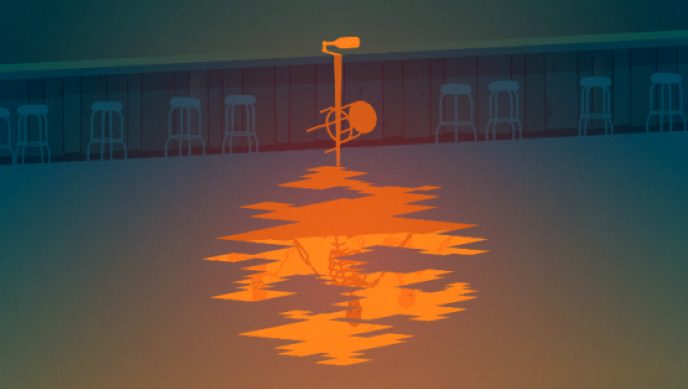
Kentucky Route Zero has always seemed to be a game about rest. The experience of playing the game itself is noticeably muted, and while the pacing isn’t exactly slow, there’s a meandering quality to it. The game itself asks very little of the player, as if it was created with the weary and heavy-laden in mind.
By now I’m starting to view Kentucky Route Zero as a game about discovering how to rest. We all have a good idea of how to physically rest; just lay down, close your eyes, and fall asleep. The next day, we’re back to normal, given enough time in slumber. But how does a spiritually exhausted person rest? How do we recharge our tired souls?—Richard Clark
1. Thumper
Thumper’s difficulty is suffocating. Along with the oppressive music and the stark graphics, it turns the game into a claustrophobic, stressful, frightening experience. It rattles around inside my brain when I’m not playing it, its velocity and brutality careening throughout as I try to unwind after playing. Thumper taps into art’s ability to alter our consciousness, introducing a new reality for us to get lost in, and it’s not afraid to let this dream world look and feel like a nightmare. Most rhythm games want to replicate the best time you could possibly have at a rave; Thumper wants you to feel like you’re shaking on the floor of a bathroom stall, praying for those weird shapes and sounds that surround you to go away. It is an essentially perfect realization of its own unique goals and concerns, and a game we’ll be playing and celebrating for decades.—Garrett Martin
